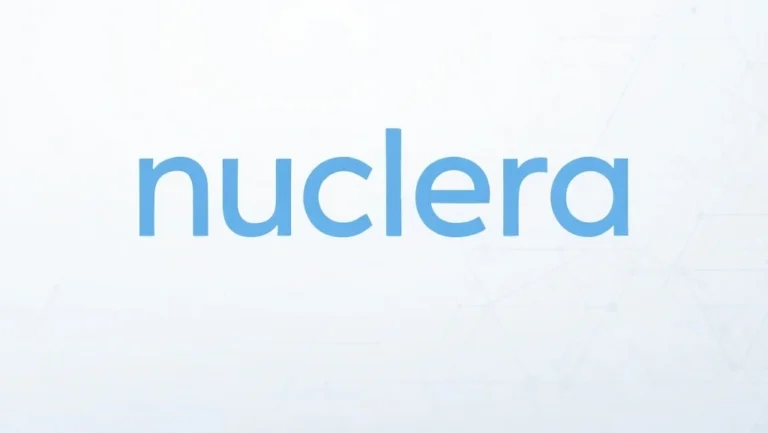
European Commission approves Roche’s fixed-duration Columvi (glofitamab) for people with relapsed or refractory diffuse large B-cell lymphoma
Roche (SIX: RO, ROG; OTCQX: RHHBY) announced today that the European Commission (EC) has granted conditional marketing authorisation for Columvi® (glofitamab) for the treatment of adult patients with relapsed or refractory (R/R) diffuse large B-cell lymphoma (DLBCL) after two or more lines of systemic therapy. With this approval, Columvi is the first CD20xCD3 T-cell-engaging bispecific antibody available to treat people in Europe with the most common and aggressive form of lymphoma following multiple lines of therapy. Columvi has the potential to change the current standard of care in DLBCL. As well as inducing early and long-lasting responses in people with heavily pre-treated or refractory DLBCL, Columvi is designed to be given for a fixed period of time meaning that people have a target end date for their course of treatment and the possibility of a treatment-free period. It is also a chemotherapy-free treatment option that is off-the-shelf, meaning that people do not have to wait for cell collection and genetic engineering – a multistep process that can take several weeks – before starting treatment. This could be particularly important for patients who are at a high-risk of their disease progressing.
DLBCL is an aggressive (fast-growing) type of lymphoma and is one of the most prevalent types of blood cancer among adults.2 Each year in Europe, an estimated 36,000 people are diagnosed with DLBCL.3 While many patients with DLBCL are responsive to initial treatment, four out of ten are not cured with the current standard of care, frontline treatment, and the majority of patients who require subsequent lines of therapy have poor outcomes.4,5
“As pioneers in the development of innovative T-cell-engaging bispecific antibodies, we are delighted that we can now offer Columvi as the first approved treatment of its kind to people in Europe,” said Levi Garraway, M.D., Ph.D., Roche’s Chief Medical Officer and Head of Global Product Development. “We are confident that thanks to its off-the-shelf availability, fixed-duration regimen and durability, Columvi will positively transform the treatment experience for relapsed or refractory diffuse large B-cell lymphoma.”
“As the lead investigator for the NP30179 study, I have seen first-hand the early and long-lasting responses that Columvi can induce, when given to patients for a fixed period of time,” said Michael Dickinson, M.D., Ph.D., principal study investigator and Associate Professor, Peter MacCallum Cancer Centre and Royal Melbourne Hospital, Australia. “It is exciting that with this approval, patients in Europe with heavily pre-treated or refractory diffuse large B-cell lymphoma will now have a new, potentially practice-changing treatment option that will allow them time off of therapy to resume their routine activities, helping to alleviate some of the physical and emotional burdens caused by cancer treatment.”
The approval is based on positive results from a pivotal cohort in the phase I/II NP30179 study, where Columvi given as a fixed course induced early and long-lasting responses in people with R/R DLBCL. Overall, 83.3% of patients were refractory to their most recent therapy, 90% were refractory to any previous line of therapy, and about one-third (35.2%) had received prior CAR T-cell therapy. Results showed that Columvi given as a fixed course, induced a complete response (CR; a disappearance of all signs of cancer) in 35.2% (n =38/108) of people, and 50% (n=54/108) achieved an overall response (OR; the combination of CR and partial response, a decrease in the amount of cancer in their body). Among those who achieved a CR, 74.6% (95% CI: 59.19-89.93) continued to experience a response at 12 months, while the median duration of CR was not reached. The median follow-up for duration of response (DOR) was 12.8 months. Median time to first CR was 42 days (95% CI: 41-47). The most common adverse events (AEs) were cytokine release syndrome (CRS; 64.3%), neutropenia (a reduction in white blood cells [37.7%]), anaemia (30.5%) and thrombocytopenia (low blood platelet count [24.7%]). CRS was generally low grade (Grade 1: 48.1%; Grade 2: 12.3%). One patient discontinued treatment due to CRS.1
Additional data from a larger cohort in the NP30179 study, published in the New England Journal of Medicine reinforce the durability of Columvi. Fixed-duration Columvi resulted in early and long-lasting responses in people with heavily pre-treated or refractory DLBCL, with 39.4% of patients (n=61/155) achieving a CR and a median DOR of 18.4 months. Median time to CR was 42 days (95% CI: 42-44), with the majority of responses reported at the first scheduled response assessment (approximately 1.4 months after the start of treatment). Half of patients (51.6%; n=80/155) achieved an OR. The most common AE was CRS, which was generally low grade (Grade 1: 47.4%; Grade 2: 11.7%) and occurred at initial doses. Columvi-related AEs leading to treatment discontinuation occurred in 3.2% of patients.6
The U.S. Food and Drug Administration (FDA) recently approved Columvi for the treatment of adult patients with R/R DLBCL not otherwise specified or large B-cell lymphoma (LBCL) arising from FL, after two or more lines of systemic therapy for the treatment of people with R/R large B cell lymphoma. Columvi is also approved in Canada for the treatment of adult patients with R/R DLBCL not otherwise specified, DLBCL arising from follicular lymphoma (FL), or primary mediastinal B-cell lymphoma, who have received two or more lines of systemic therapy and are ineligible to receive or cannot receive CAR T-cell therapy or have previously received CAR T-cell therapy. Submissions to additional health authorities worldwide are ongoing.
Roche is continually building on its long-standing expertise in haematology by investigating innovative solutions that redefine treatment standards for patients and improve on existing standards of care. In a broad and industry-leading CD20xCD3 T-cell-engaging bispecific antibody clinical development programme, Roche is exploring the potential of both Columvi and Lunsumio® (mosunetuzumab) in earlier lines of treatment and in combination with other novel and chemotherapy-free agents, such as Polivy® (polatuzumab vedotin), with the goal of providing patients with long-lasting outcomes.
Source link:https://www.roche.com/





